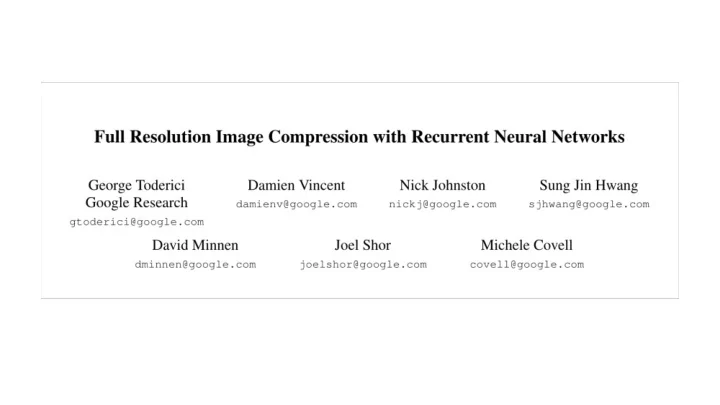

A brief review of similar attempts .. • In the paper “Using very deep autoencoders for content-based image retrieval” A. Krizhevsky and Geoffrey Hinton proposed autoencoder can be used to map images to binary codes. • The paper “Extracting and Composing Robust Features with Denoising Autoencoders” proposes use of initial unsupervised step in denoising autoencoder. • In march 2016, a team at google proposed LSTMs for autoencoder. The paper “Variable rate image compression with recurrent neural networks” describes how thumbnails generation can be accomplished.
Introduction • Proposed neural network consists of RNN based encoder and decoder and a binarizer. • This framework provides competitive compression rates on images of arbitrary size. • Binarizer is a neural network used for entropy coding. • The network is evaluated using : PSNR-HVS and MS-SSIM metrics. • This architecture outperforms JPEG on kodak image dataset.
Network architecture • There are two ways in which an image can be reconstructed. - one shot reconstruction and additive reconstruction. • Single iteration of network can be represented as : Here ! = 0. represents one-shot reconstruction while ! = 1 represents additive reconstruction. " # = −1,1 m m is number of bits produced after each iteration.
Network Architecture Reconstructed Original Encoder Binarizer Decoder image image - Residual image ( to be minimized)
Unrolled model
Single iteration of architecture
How conv + RNN cell works? • Convolution followed by LSTM cell. • Divide tensor in small chunks. • Apply LSTM on individual chunks. • Return value of hidden state and c.
Results
Recommend
More recommend